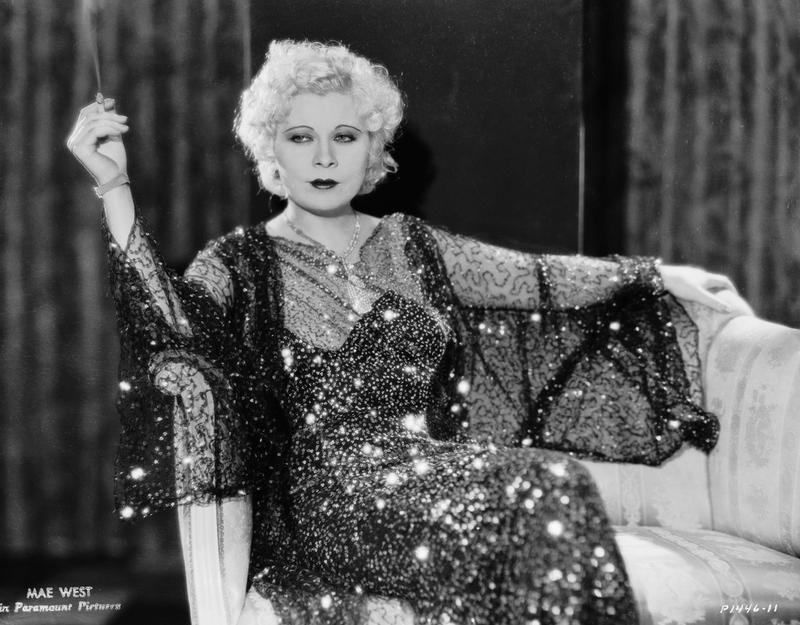Mae West: Come Up And See Me Sometime!
By | February 13, 2019

The Early Years
Mae West was born in New York City in 1893. She began performing on Broadway in a stock company. She met Frank Wallace and became part of his vaudeville act. She ended up marrying Frank when she was only seventeen years old. She kept this marriage a secret for several years and claimed that she and Frank never lived together as husband and wife. She divorced him in 1920.

Mae West: The Writer
In the early twenties, Mae West was writing, producing, and starring in her own plays on Broadway! The first play, ‘Sex’ she played a prostitute and was a sensation! This also landed her in jail for a week for corruption. When she was released from jail, she was a national figure. Her next few plays were equally as successful. The overriding theme of her plays was the ridicule of social attitudes, especially about sex.

Mae West: The Movie Star
Hollywood finally became interested in Mae West in 1932. She was thirty-eight years old when she signed a contract with Paramount Pictures. While she was considered a bit old for the types of roles she played, her personality and beauty overshadowed those concerns. Her first film, ‘Night After Night’ had her playing a fairly small role, but she was allowed to rewrite her lines to fit her persona better. In the film, ‘She Done Him Wrong,’ she created her famous ‘Lady Lou’ character who uttered her most famous line, ‘Why don’t you come up and see me sometime?’ The movie was a hit and nominated for an Academy Award for best picture. Mae West became one of the largest box office draws as well as being the second highest paid person in the United States.

Mae West: The Controversy
Mae West’s characters were usually very sexual and the scenes quite risqué for the time. This caused many to be uncomfortable with her and her movies. The Motion Picture Production Code was one such group. This group had the power to change scripts and would approve productions. This group became very focused on the films West was starring in. West responded by changing the script to include double entendres, which got by the censors. Her film, ‘Klondike Annie’ was about religion and hypocrisy which sent lots of people over the edge. William Randolph Hearst was so against this film, that he did not allow advertising of the film in any of his publications. Despite that, the film did very well and was the high-point of her career.

Mae West: How The Radio Almost Ended Her Career
As the years went by, her films became less popular. She was also quite restricted because of the censorship of her movies. In 1937, she appeared on a radio show with Edgar Bergen. The dialogue between West and Bergen, along with Bergen’s ventriloquist dummy, was typical Mae West. After the appearance, NBC received many letters calling the show obscene. Morality groups went after the sponsor of the show, Sanborn Coffee Company for allowing such things to be said on their show. The FCC called the show vulgar and indecent. NBC blamed Mae West for it and banned her from appearing in any NBC production. West tried to make a comeback in the film, ‘Destry Rides Again’. The film ended up being a success and she went on to make another film that failed miserably. At this time, she decided to retire from films and go back to Broadway.

Mae West: The Later Years
Mae West left Hollywood and created a nightclub act, which was very successful. She wrote her autobiography, ‘Goodness Had Nothing to Do With It.’ She appeared on a few television shows as a guest and even recorded a couple of albums. In the 1970s she made a couple more movies. Her last movie, ‘Sexlette’ came out in 1978. It was not a huge success at the time. Mae West passed away at the age of 87 after suffering debilitating strokes. She will always be remembered for her one-liners and pushing the envelope.

